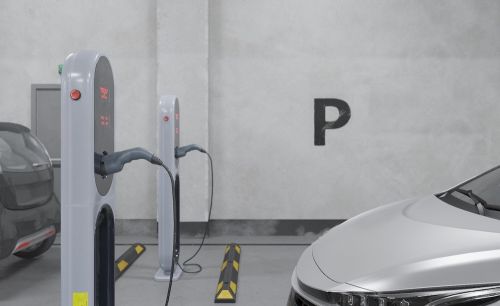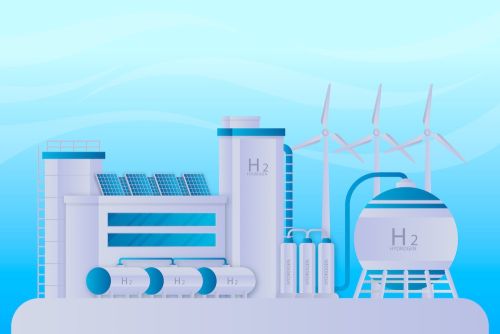Transforming Waste Management: An Interview with Martin Kosak of Sensoneo


Cut through the green tape
We don't push agendas. At Net Zero Compare, we cut through the hype and fear to deliver the straightforward facts you need for making informed decisions on green products and services. Whether motivated by compliance, customer demands, or a real passion for the environment, you’re welcome here. We provide reliable information—why you seek it is not our concern.
Interview with Martin Kosak from Sensoneo: Smarter Waste Management for a Sustainable Future
In our recent interview, we spoke with Martin Kosak from Sensoneo, a company dedicated to transforming waste management through smart technology. Sensoneo, headquartered in Bratislava, Slovakia, has implemented solutions worldwide that help cities, industries, and countries improve recycling, cut waste collection costs, and reduce environmental impact. Here’s what Martin shared with us about Sensoneo’s journey, their innovative projects, and what’s next for the company.
Karol Kaczmarek: Thank you, Martin, for joining us. Could you start by giving us an overview of Sensoneo and its mission?
Martin Kosak: Sensoneo is based in Bratislava, and we focus on creating practical, tech-based waste management solutions. Our portfolio includes hardware, software, and consultancy services, all developed here in the EU. We’re proud to be the only company worldwide that has successfully implemented a Deposit Return Scheme (DRS) software in more than five countries, achieving recycling rates above 90%. This solution encourages recycling and supports the circular economy by giving customers incentives to return used items.
We’re also working on waste collection optimization, particularly for factories and municipalities. For example, in Madrid, we’re deploying 11,100 sensors—the largest smart waste project of its kind. Our clients can use these sensors for data-driven waste management, achieving real-time accuracy of 97% in tracking waste production.
Karol Kaczmarek: Your solutions seem broad-ranging. Can you tell us more about the specific services you offer?
Martin Kosak: Absolutely. Our core offerings are divided into three main divisions:
Deposit Return Scheme (DRS): We’ve implemented this in several countries, including Slovakia, Malta, and Romania. It’s all about promoting recycling by offering a small refund to consumers when they return items like bottles. This has proven highly effective, as it simplifies the recycling process for end consumers.
Municipal Waste Collection: For cities, we offer tools like ultrasonic bin sensors and dynamic route planning software. These make waste collection more efficient, reducing the need for unnecessary trips and, as a result, emissions. For example, in Prague, we’ve set up 3,000 sensors that provide real-time data to the city, allowing them to optimize waste pickups.
Factory Waste Management: Factories and large facilities have unique waste management needs, and we cater specifically to these. We provide solutions that allow for real-time tracking of waste, contamination reporting, and automated notifications when bins are full. This data helps factories improve recycling and reach sustainability goals. We’ve even designed a QR-based tracking system, where operators scan bins and report contamination on the go, providing the facility with precise data for ESG reporting.
Karol Kaczmarek: What about your new developments? I understand there’s a radar sensor in the pipeline?
Martin Kosak: Yes, we’re excited about the radar sensor—it’s designed for more challenging waste types, like hazardous materials. Unlike traditional ultrasonic sensors, this radar sensor can work through solid barriers, making it ideal for tracking things like used oil. For example, it can measure the fill level of kerosene oil tanks in Ireland, helping residents track usage and reorder when necessary.
Polina Martinuka: You’ve mentioned a few large-scale projects, but could you share more about your most notable use cases or partnerships?
Martin Kosak: Certainly. Besides Madrid, where we’ll have 11,100 sensors, we’ve completed major projects in Qatar, installing 7,500 sensors, and in Buenos Aires, with 4,000 sensors. These installations support large-scale, efficient waste collection and tracking, helping cities reduce emissions and manage waste sustainably.
Another significant area is the Deposit Return Scheme, where Sensoneo has deployed its IT solution in countries like Slovakia, Romania, and Ireland. This system is set to roll out in Austria next year, making it one of the largest deposit systems in the EU, with nationwide reach.
Karol Kaczmarek: Your company seems to be expanding globally. Where do you see the most potential for growth?
Martin Kosak: We see a lot of potential in the U.S., which is why we’re opening a new office in New York. We also work through a network of reseller partners in over 50 countries, which allows us to reach markets from Qatar to Argentina. Our three largest markets right now are Europe, the MENA region, and North America, where we’ve done some of our most ambitious projects.
Karol Kaczmarek: Thank you, Martin. What’s next for Sensoneo in terms of future goals?
Martin Kosak: Innovation is key for us. We’re exploring AI solutions to improve waste sorting and data analysis. Our focus is to continue building solutions that help cities and companies make smarter, more sustainable waste management choices. We’ll keep expanding globally, with a keen focus on markets like North America, and introducing more products tailored to diverse waste management needs.
Karol Kaczmarek: Thank you, Martin, for sharing these insights. Sensoneo’s work is inspiring, and we look forward to seeing the impact of your solutions worldwide.
Martin Kosak: Thank you, Karol. We’re excited about what’s to come!

More related content

Ohmie Go and the Rise of E-Mobility as a Building Standard

Turning Waste into Fuel: How Hydrogen Refinery is Reshaping Sustain...

Interview with Jing Tian, Chief Growth and Revenue Officer at Tigo ...
